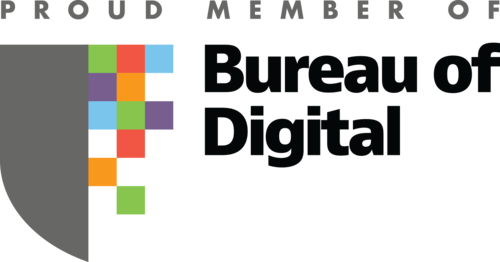Have an idea for a technology project for your business? Need help making it happen? Learn what not to do when hiring the right firm.
Why does it matter?
One of my roles at Standard Beagle is business development, and I spend a lot of time talking to people about their projects.
Since I first started freelancing in 2007, I’ve probably talked to hundreds of people about web and software projects. Many times these prospective clients approach me the same way. They have somewhat of an idea of what they need, and they want to know what it would take to accomplish it.
Unfortunately, I see a lot of the same mistakes when people try to hire an agency. So I thought I’d share the top 9 mistakes people make, so you can make a more informed decision.
1. Not thinking through your idea
Our best clients have a good idea of what they are looking for.
We help them refine their specifications and put together an idea of the approach, but ideally, clients should have a strategy already worked out as well as a budget. When I ask a prospective client what their budget is, it’s not so I can rip them off. It’s so I can understand how best to approach a project.
There are dozens of ways to build technology, and we want to find the approach that best suits our client’s needs, budget, and specifications.
So if you don’t have more than a vague idea of what you want, I may not be able to deliver a proposal that meets your needs.
2. Wanting it ALL
This is when you have visions of a project, but you really don’t understand how complex it is. The result can be a huge project that drags on and on with nothing to show because the project just keeps becoming more and more bloated.
Our job is to help move clients toward a phased approach – we do this through an agile development process.
The idea here is to deliver a minimum viable product — like a simple website — quickly. Then we iterate over time, changing it or adding features as we learn from user behavior. By doing it this way, clients have the potential to start making money faster, and the technology can be adjusted to meet demands of users through each iteration.
A good agency will work with you to not just launch your project, but also help you continue to make changes and improvements to it over time.
3. Confusing “designers” as “developers”
There are two basic parts of any technology project — it doesn’t matter whether it’s an app or a website. First you design a feature, and then you code it into the framework.
Unless your designer is also a developer — which means they are capable of writing HTML, CSS and more, you may not have hired the professional you thought you did. Often times, designers do not code. They rely on a third-party to code their designs. Make sure you ask the agency or the designer you want to work with who will be coding your project.
4. Confusing “graphic designers” with “web designers”
Graphic design is not the same as web design. Graphic design has its roots in the print world, and often the graphic designers I have worked with are more adept at creating static pieces of work.
Web design is more interactive, and it encompasses a number of disciplines, from information architecture and user interface design to visual design and animation. It’s basically designing how users interact with the technology. I like to refer to web designers as experience designers, because they are designing the entire experience for how a user works with a piece of technology.
I’ve noticed that websites designed by graphic designers look gorgeous, but often lack the forethought of how people actually will use the site. A lot of thought should go into technology design, and experience designers have that special knowledge.
5. Confusing “developers” with “configurers”
I used to work for a guy who was a steel guitar player in Nashville. He used to lament the rise of the guys he used to call “knob turners.” These were recently-graduated producers who would adjust the sound by turning knobs on the board to get it right. Compare this to the seasoned producers. If something didn’t sound right, rather than turn a bunch of knobs, they would walk into the room and move the mic closer. Problem solved.
Be careful if your project has complexity. This includes ecommerce, community or other complex systems. I have noticed there are a lot of web platform “configurers” out there, who pose as developers but cannot actually develop custom solutions. On more than one occasion, a client will come to us for help with their website, and we discover a poorly coded site that relies on third-party plugins out of the box. These websites are often fast to build and budget-friendly. Unfortunately, they can be limiting, especially if you need to make changes down the road.
If you feel that your project requires custom development, ask the prospective agency for examples where they had specific requirements that required a customized solution.
6. Insisting on an agency that specializes in a certain industry
If you wanted to hire a painter to paint your house brown, would you specify that you need a house painter have previously used brown paint? If the company has worked in every color except brown, would you turn them away?
That would be silly, right?
Well, it happens all the time in my industry. Companies look for agencies that specialize in their field. Now, there are some industries that are highly regulated, but this is mostly for content compliance. The truth is — when it comes to developing technology, the right agency will be able to handle multiple scenarios. They will have experience in the languages and tools required for the project.
Also, many times agencies that specialize in an industry become complacent because they work in it all the time. You risk not having an original site that suits your needs.
Besides, why would you want to hire an agency that might be helping your competitor?
7. Assuming “large” means “good”

Large firms are impressive, and they bring a lot to the table, But there are downsides to working with a large agency on a project. Some agencies can be difficult places to work. As a result there may be high turnover. Agencies can also have high overhead, and high prices. Make sure you do your homework on what you’re getting rather than assume a big agency is better than a smaller one.
We are a small, boutique firm. I feel we are better able to change direction for our clients. Plus, we all work in house, so it’s easier to reach us.
8. Confusing what you want with what your user wants
Some clients forget that they are not their user. They make a lot of assumptions about their customers, but they don’t really know until they get a product in front of the user.
In addition, you might forget that you are hiring an agency for a reason – because they have expertise you don’t have. Think of a doctor or a contractor. You wouldn’t tell them where to put the nails.
Trust your agency to provide the expertise to help you achieve your goals. The good agencies will recommend user testing and user interviews as part of the process to figure out how best to make that happen. They will use data to help validate or rebutt what you think about your users. And the result will be a better product.
9. Choosing the lowest bidder

This is the worst way to choose a professional for your technology project. Pricing depends heavily on a number of different factors.
For one — size. A large agency may have a large price tag because of the overhead and their expertise. A small firm may actually be one guy working out of his house that relies on off-shore outsourcing to keep prices low. And a mid-size firm may be in the middle because they have all of the capabilities to tackle a project in-house.
Keep this thought in mind — it’s much better to build a small high-quality feature that meets some of your users needs now than to build a cheap, crappy site that pisses them off.
I recommend interviewing agencies. Make your choice based on ability, references, how well you click with them — plus consider the agency’s approach to your project. Never rely solely on price.











